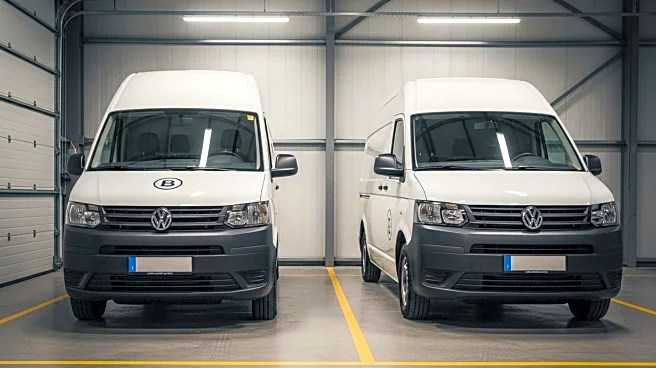What's Happening?
Fleet managers are considering the implications of allowing drivers to use company vans for personal journeys. While this practice can enhance employee satisfaction and retention, it poses cost, risk, and administrative challenges. Electric vans offer tax benefits, but internal combustion engine vans require employers to pay Class 1A National Insurance and employees to pay tax on personal use. Companies like Anglian Water have strict policies against personal use, citing potential disciplinary actions for non-compliance. Telematics devices are used to monitor vehicle use and ensure policy adherence.
Why It's Important?
The decision to allow personal use of company vans impacts fleet management costs, employee relations, and compliance with tax regulations. Allowing personal use can improve employee morale and reduce recruitment costs, but it also increases administrative burdens and potential insurance liabilities. Companies must weigh the benefits of employee satisfaction against the financial and operational risks involved.
What's Next?
Fleet managers may continue to refine policies regarding personal use of company vehicles, balancing employee benefits with cost management. The use of telematics and clear policy guidelines will be crucial in managing compliance and mitigating risks. Companies may explore alternative benefits to enhance employee satisfaction without incurring additional costs.
Beyond the Headlines
The debate over personal use of company vans highlights broader issues in fleet management, including the integration of technology and the need for clear communication of policies. As telematics become more prevalent, companies may face ethical considerations regarding employee privacy and data usage.










